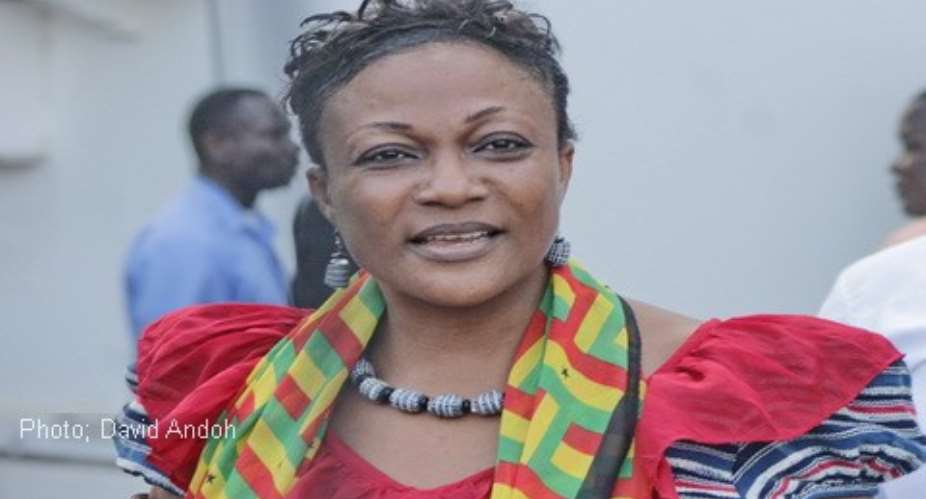The process for the approval of Madam Otiko Djaba, as Minister of Gender and Social Protection, became a subject of heated debate in Parliament recently. The Minority side, which objected to her approval by the House, argued that apart from refusing to apologise for the insults she rained on former President John Dramani Mahama, Otiko also failed to do her National Service, as demanded by law. To the Minority, approving her nomination would have meant they had condoned an illegality.
The Majority, however, thought otherwise, arguing that since Otiko Djaba completed her degree programme at the University of Development Studies (UDS) at the ripe age of 47, she qualified for exemption from doing National Service, and that the National Service Secretariat (NSS) had subsequently given her a waiver.
The Minority came back to strongly argue that at the time that Madam Otiko appeared before the Appointments Committee, no such waiver had been given, and that she herself admitted that she did not do National Service.
The back and forth arguments compelled Speaker Oquaye to call for a vote to determine the fate of the now Minister for Gender and Social Protection. As the adage goes – the Minority will have their say, but the Majority would have their way. At the end of the vote, the Majority had their way, and approval was given for Otiko Djaba to become a Minister.
Two of the Minority MPs, who are dissatisfied with the conduct of the Majority, have taken the matter to court by way of a writ they have filed at the Supreme Court. The Chronicle is happy with the decision of the two MPs to go to court, because it would help settle the legal ambiguities surrounding the two arguments being espoused by those in favour of the approval, and those who are against it.
Per the Minority argument, any Ghanaian who failed to do National Service is debarred from employment in the public sector by the NSS law, which was passed in the early 1980s. The Majority had also contended that the qualification for one to become a minister is the same as those seeking to enter Parliament, and that if a nominee qualified to become an MP, nothing should stop him or her from becoming a minister.
Indeed, Article 94 of the Constitution, which deals with the subject, states among others that, Subject to the provisions of this article, a person shall not be qualified to be a member of Parliament unless – (a) he is a citizen of Ghana, has attained the age of twenty-one years and is a registered voter;
(b) he is resident in the constituency for which he stands as a candidate for election to Parliament, or has resided there for a total period of not less than five years out of the ten years immediately preceding the election for which he stands, or he hails from that constituency; and
(c) he has paid all his taxes, or made arrangements satisfactory to the appropriate authority for the payment of his taxes.
(2) A person shall not be qualified to be a member of Parliament if he – (a) owes allegiance to a country other than Ghana: or (b) has been adjudged or otherwise declared – (i) bankrupt under any law in force in Ghana and has not been discharged or (ii) to be of unsound mind or is detained as a criminal lunatic under any law in force in Ghana.
Though we have not reproduced the entire qualification as stated in Article 94, nowhere has it been stated that if one failed to do his or her national service, he or she cannot become a Member of Parliament. On the other hand, the NSS Act is part and parcel of our enforceable laws. Therefore, if it says one must not be employed if the person fails to do his or her national service, the person must, indeed, not be employed in the public sector.
It based on all these that we agree with the decision by the MPs to go to court for the Supreme Court to help the public to untie the Gordian knot





 'Kill whoever will rig Ejisu by-election' – Independent Candidate supporters inv...
'Kill whoever will rig Ejisu by-election' – Independent Candidate supporters inv...
 Ashanti Region: ‘Apologize to me for claiming I owe electricity bills else... – ...
Ashanti Region: ‘Apologize to me for claiming I owe electricity bills else... – ...
 Ghana is a mess; citizens will stand for their party even if they’re dying — Kof...
Ghana is a mess; citizens will stand for their party even if they’re dying — Kof...
 Internet shutdown an abuse of human rights — CSOs to gov't
Internet shutdown an abuse of human rights — CSOs to gov't
 Free SHS policy: Eating Tom Brown in the morning, afternoon, evening will be a t...
Free SHS policy: Eating Tom Brown in the morning, afternoon, evening will be a t...
 Dumsor: A British energy expert 'lied' Ghanaians, causing us to abandon energy p...
Dumsor: A British energy expert 'lied' Ghanaians, causing us to abandon energy p...
 What a speech! — Imani Africa boss reacts to Prof. Opoku Agyemang’s presentation
What a speech! — Imani Africa boss reacts to Prof. Opoku Agyemang’s presentation
 Dumsor: Tell us the truth — Atik Mohammed to ECG
Dumsor: Tell us the truth — Atik Mohammed to ECG
 Dumsor: Don't rush to demand timetable; the problem may be temporary — Atik Moha...
Dumsor: Don't rush to demand timetable; the problem may be temporary — Atik Moha...
 Space X Starlink’s satellite broadband approved in Ghana — NCA
Space X Starlink’s satellite broadband approved in Ghana — NCA
